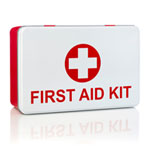Setting Goals For Your Employees

Setting realistic goals for employees should begin before a new hire has even started working and then continue to evolve as the employee grows in the company. Setting employee goals should be done as soon as you decide that there is a need to hire someone new. This will help clearly define the tasks that need to be done in order to complete the job.
Making clear definite goals for a new hire can also give them a guideline of what they need to learn and where they should be in the next six months to a year. It will also assist in personal growth as well. By giving your employee set professional goals, you will help them think beyond their current skills and consider taking self-improvement classes, which could help your organization as a whole.

Setting short-term and long-term goals will also help the employee focus on the responsibilities expected by the organization, and will help align the goals between the human resources manager and the employee. This can make the newly hired employee’s position more enjoyable and the process of beginning their career go smoothly.
As important as it is to set effective goals for new hires, it is also important to track their progress. It is vital, as an employer, to learn to adapt and adjust goals as your business changes and new technology becomes available. Keep in mind, however, that updating your company goals too frequently can indicate that you have lost sight of the main reason for your goals that you have set.
In addition, failing to follow up with your employee on the goals you have set for them can give them the impression that you do not care about their success in the company. It is very important to have one-on-one discussions with your employees to guide them as they progress successfully within the company.
A few tips in helping an employer set the right goals for employees is to assign clear, specific and realistic goals that are attainable, but still challenging, so that the employee does not feel overwhelmed by the goals set for them. Some examples of goals that you can set for your employees are possibly making a few more sales calls per month or increasing the number of units produced by assembly line workers, and then rewarding them with productivity bonuses. These types of goals can help them feel like the employer cares about the job they are doing and give them motivation to continue to increase their productivity.
Setting efficiency goals is also important in the productivity of your company. By setting efficiency goals, you will be able to track the speed and accuracy of your employees’ performance. By teaching your employees how to be more efficient and setting goals on how they will be able to obtain a more productive and efficient work day, will help increase your business.
One of the best ways to increase the efficiency in your business is to decide what improvements you are seeking and address those issues. Some examples of efficiency goals may be product or service quality, speed of production or response times, employee or customer retention, increased knowledge and safety.
Education goals are another valuable link to having a successful business. When an employee is able to reach educational milestones within the company, they become more valuable to their employer, as well as give the employee a sense of achievement.
As an employer, it is also helpful if you are a positive role model and perform outstanding in the goals you set for yourself. When you achieve challenging goals, you will set the stage for a better performance from your employees.
You might also be interested in...
-
 10 Signs You May Not Be Drinking Enough Water
10 Signs You May Not Be Drinking Enough Water
-
 8 Signs You May Not Be Getting Enough Magnesium
8 Signs You May Not Be Getting Enough Magnesium
-
 About Life Insurance
About Life Insurance
-
 Do You Really Need Life Insurance?
Do You Really Need Life Insurance?
-
 Does Divorce Spell The End Of A Happy Childhood
Does Divorce Spell The End Of A Happy Childhood
-
 Globe Life is Rated A (Excellent)
Globe Life is Rated A (Excellent)
-
 Health Symptoms You Should Never Ignore
Health Symptoms You Should Never Ignore
-
 History of Life Insurance
History of Life Insurance
-
 Home Cough Remedies
Home Cough Remedies
-
 How High Should Your SPF Be
How High Should Your SPF Be
-
 How To Be Responsible About Life Insurance
How To Be Responsible About Life Insurance
-
 Is Eating Organic Really Safer?
Is Eating Organic Really Safer?
-
 Is White Vinegar A Safe Cleaning Agent?
Is White Vinegar A Safe Cleaning Agent?
-
 Planning Your Family For An Emergency Evacuation
Planning Your Family For An Emergency Evacuation
-
 The Difference Between Power Of Attorney And A Living Will
The Difference Between Power Of Attorney And A Living Will
-
 Reconsider Getting a Life Insurance Policy
Reconsider Getting a Life Insurance Policy
-
 Setting Goals For Your Employees
Setting Goals For Your Employees
-
 Skills that Make Bosses Want to Hire You
Skills that Make Bosses Want to Hire You
-
 The Importance of Life Insurance
The Importance of Life Insurance
-
 The Importance of Term Life Insurance
The Importance of Term Life Insurance
-
 Is It Time To Review Your Life Insurance Policy?
Is It Time To Review Your Life Insurance Policy?
-
 Tips On How To Prevent E.coli
Tips On How To Prevent E.coli
-
 Too Busy to Stay Healthy?
Too Busy to Stay Healthy?
-
 What Is COPD And How You Can Prevent It?
What Is COPD And How You Can Prevent It?
-
 What is Term Life Insurance?
What is Term Life Insurance?
-
 When Insurance Becomes an Investment
When Insurance Becomes an Investment
-
 Choosing Whole Life Vs Term Life Insurance
Choosing Whole Life Vs Term Life Insurance
-
 Why You Should Look Into Term Life Insurance
Why You Should Look Into Term Life Insurance
-
 Making Your Home Senior-Friendly
Making Your Home Senior-Friendly
-
 Is Whooping Cough Making A Comeback
Is Whooping Cough Making A Comeback
-
 Unusual Tricks To Reduce The Risk Of Heart Disease
Unusual Tricks To Reduce The Risk Of Heart Disease
-
 The Best First Aid Kit Everyone Should Have
The Best First Aid Kit Everyone Should Have
-
 Beware Of Dangerous Mold
Beware Of Dangerous Mold
-
 5 Things You Should Know About Thyroid Health
5 Things You Should Know About Thyroid Health
-
 What Your Eyes Reveal About Your Health
What Your Eyes Reveal About Your Health
-
 Everyday Things That Can Cause Memory Loss
Everyday Things That Can Cause Memory Loss
-
 How To Discuss Life Insurance With Your Spouse
How To Discuss Life Insurance With Your Spouse
-
 Why That Cold Won’t Go Away
Why That Cold Won’t Go Away
-
 5 Ways To Keep A Healthy Smile
5 Ways To Keep A Healthy Smile
-
 How Dangerous Is Sugar?
How Dangerous Is Sugar?
-
 5 Warning Signs To Change Healthcare Providers
5 Warning Signs To Change Healthcare Providers
-
 Simple Secrets To Conquer Flu Season
Simple Secrets To Conquer Flu Season
-
 The Hidden Bad Side Of Everyday Foods
The Hidden Bad Side Of Everyday Foods
-
 How To Avoid The Scams That Tricked So Many
How To Avoid The Scams That Tricked So Many
-
 Six Foods That May Reduce Stroke Risk
Six Foods That May Reduce Stroke Risk
-
 Empty Nesters: Don’t Ditch Life Insurance Until You Consider This
Empty Nesters: Don’t Ditch Life Insurance Until You Consider This
-
 How Does Accidental Death Insurance Work?
How Does Accidental Death Insurance Work?
-
 4 Tips To Improve Your Credit Score
4 Tips To Improve Your Credit Score
-
 6 Tech Devices You Need For Family Safety
6 Tech Devices You Need For Family Safety
-
 Public Transportation Safety Tips
Public Transportation Safety Tips
-
 Is Globe Life Insurance Reliable?
Is Globe Life Insurance Reliable?
-
 Hazards in the Kitchen: What You Do Every Day that Puts You at Risk for a Serious Accident
Hazards in the Kitchen: What You Do Every Day that Puts You at Risk for a Serious Accident
-
 Surviving a Snake Bite
Surviving a Snake Bite
-
 Is Globe Life Insurance Term or Whole Life?
Is Globe Life Insurance Term or Whole Life?
-
 The Top 4 Leading Causes of Death for People Older Than 50 and How to Avoid Them
The Top 4 Leading Causes of Death for People Older Than 50 and How to Avoid Them
-
 Nine Eye-Opening Stats That Will Make You Rethink Texting and Driving
Nine Eye-Opening Stats That Will Make You Rethink Texting and Driving
-
 Risks of Dying from Cancer
Risks of Dying from Cancer
-
 What are the Odds of Dying While Taking a Selfie?
What are the Odds of Dying While Taking a Selfie?
-
 Can I Get an Accidental Death Quote Online?
Can I Get an Accidental Death Quote Online?
-
 Buying Life Insurance for the Whole Family
Buying Life Insurance for the Whole Family
-
 What You Need to Know Before Buying Term Life Insurance
What You Need to Know Before Buying Term Life Insurance
-
 Advantages and Disadvantages of Getting Life Insurance without a Medical Exam
Advantages and Disadvantages of Getting Life Insurance without a Medical Exam
-
 A New Year's Resolution You Can Keep: Buy Life Insurance
A New Year's Resolution You Can Keep: Buy Life Insurance
-
 Food Contamination: Ways to Avoid the Potential Dangers and Keep Food Safe
Food Contamination: Ways to Avoid the Potential Dangers and Keep Food Safe
-
 Can I Increase the Face Value of My Term Life Insurance?
Can I Increase the Face Value of My Term Life Insurance?
-
 What is Mortgage Protection Insurance?
What is Mortgage Protection Insurance?
-
 Do I need Accidental Death Insurance?
Do I need Accidental Death Insurance?
-
 How Does a Graded Death Benefit Whole Life Insurance Policy Work?
How Does a Graded Death Benefit Whole Life Insurance Policy Work?

 Insurance products are available in New York from
Insurance products are available in New York from  Insurance products are available in your state from
Insurance products are available in your state from 









































































